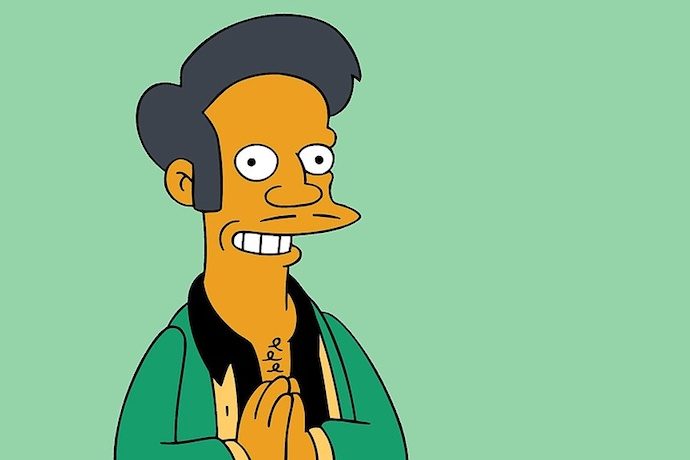This week, Emmy Award-winning actor Hank Azaria finally offered to stop doing the voice of Apu, the Indian caricature on The Simpsons.
It only took nearly 30 years.
While Azaria is getting some kudos for his willingness to acknowledge the inherent racism of the Apu character, which was highlighted in the Hari Kondabolu documentary The Problem With Apu, the question is why it’s taken so long. In fact, just a few weeks ago, The Simpsons almost seemed to openly resist the idea of ever changing Apu’s voice.
But Azaria’s offer seems almost a little too late because of the impact Apu had on a generation of South Asian Americans (in particular Hindus), which Kondabolu so deftly noted in his documentary. Simply put, Apu was the bane of my existence in middle school—and occasionally high school. The Apu jokes were frequent, but so were the slights from my peers about Hinduism, given that The Simpsons occasionally took time to mock Hindu gods and goddesses.
The problem with Apu wasn’t just the voice and the caricature. The problem is that Apu represented something safe for white liberals to pick on without fear of repercussion, much in the same way that Family Guy frequently picks on Asian Americans. It showed an incredible lack of self-awareness by the writers of both shows, whose teams have long been lauded for infusing social commentary into their satirical looks into America’s changing landscape.
There was never any coordinated effort by Hindus—or even the greater South Asian community —to protest Apu in the 1990s, and so he became an inextricable part of Simpsons iconography. For those of us living as Indian Americans (and Hindus) at the time of the show’s rise, “Ay Caramba” was only the second most memorable line next to “Thank You, Come Again,” which Azaria weaponized for mean-minded teens.
Despite its presence in the country for nearly two centuries, as othered and exoticized as Hinduism has been in American discourse, Apu was akin to a frequent punch to the gut for many kids who struggled with their religious identities in settings where they were the minority. As scholars like Khyati Joshi have noted, the prevalence of Christian privilege can make being a Hindu—or being from any other non-Christian group—feel isolating. Apu—and the chilled monkey brains scene from Indiana Jones—made that isolation worse for many Hindus.
Azaria’s sort-of apology and offer to stop voicing Apu (and suggest hiring South Asian writers) just seems as if it’s a reaction to a belated movement to end an offensive stereotype. But if Azaria, Matt Groening and Fox had really wanted to do the right thing, they might have ended Apu long before he inflicted trauma on so many young Indian Americans and Hindus.





